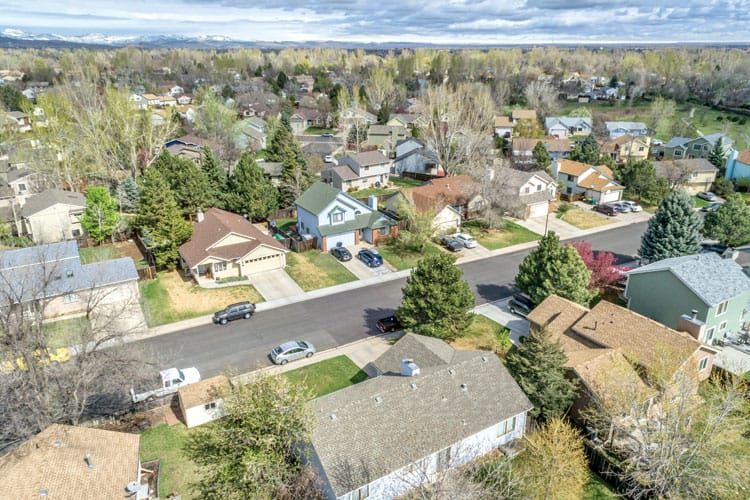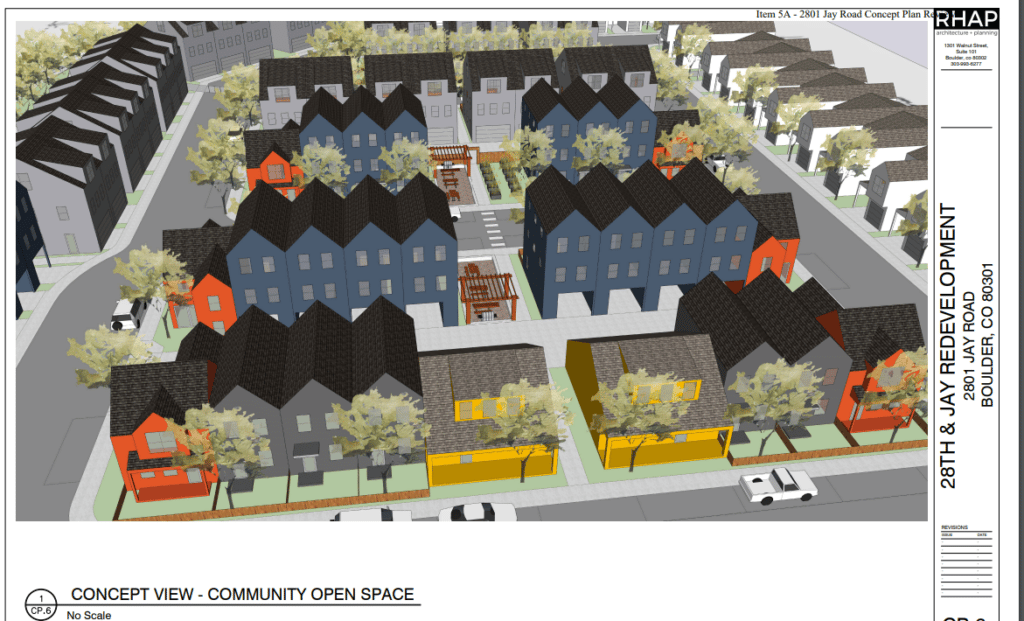Affordable — at what cost?
Polis’ plan to address housing crisis creates odd battle lines

An ambitious piece of legislation introduced late last month by Gov. Jared Polis and three Democratic lawmakers faced its first test Thursday — a grueling 12-hour public hearing before the state Senate’s Local Government and Housing subcommittee that revealed broad agreement on the need for more affordable housing in Colorado but also sharply divided opinions on how to achieve it.
The debate over Senate Bill 23-213 has crossed partisan and ideological lines in ways as unpredictable as guessing that men’s college basketball teams from Florida Atlantic and San Diego State universities would make it to the Final Four.
It has divided cities, chambers of commerce, housing activists, liberals, conservatives, employers and employees.
SPONSORED CONTENT
22nd Annual Vintage Affair: A Community Gathering to Support Pathways
The 22nd Annual A Vintage Affair event, presented by Wilbur’s Total Beverage, benefits Pathways’ mission of providing expert medical and comfort care for individuals navigating the last months of life.
“That’s the definition of a crisis,” noted Ann Hutchison, president and CEO of the Fort Collins Area Chamber of Commerce. “It doesn’t matter what letter jacket you’re wearing.”
If passed in its current form, SB 23-213 would force municipalities to change their development codes to allow more density and housing options in areas currently zoned for single-family residences. It especially aims for more density along key transit corridors.
If that sounds familiar to residents of Northern Colorado, it should be. It’s quite similar to what the city of Fort Collins tried to do last fall. Its City Council on Nov. 1 approved a sweeping, 474-page measure that would change the name of the city’s “land-use code” to “land-development code.” Contending that Fort Collins needed more capacity, diversity and affordability in housing, that the code needed to be easier to understand and that housing development reviews needed to be more predictable, the council crafted an ordinance that would have, among other things, eliminated zones just for single-family homes in low-density neighborhoods, thus allowing secondary structures such as carriage houses, tiny homes or other “additional dwelling units” on residential lots, and would have substantially cut back on the public-hearing process for new developments.
The revamped code had the support of Habitat for Humanity and many of the other groups in the city that advocate for affordable housing, as well as the Fort Collins Area Chamber of Commerce and an advocacy organization called FoCo Forward.
However, opponents alleged that the impacts of the increased density would adversely affect Fort Collins’ character without guarantees that housing affordability would follow. A group calling itself Preserve Fort Collins, spearheaded by former City Council member Ross Cunniff, launched what would become a successful petition drive to force the council to either repeal the new code or refer the issue to Fort Collins voters, either in a special municipal election or as part of a general election ballot this fall.
Its hand forced, the council on Jan. 17 voted unanimously to repeal the sweeping changes to the city’s land-use code and to reinstate the previous code, which had been crafted in 1997. And yet the affordability crisis has remained, so city officials and community groups on both sides have been trying to come up with alternative ideas.
But just as before, the groups led by Hutchison and Cunniff have come down on opposite sides.

In a statement Hutchison emailed to BizWest on Friday, the Fort Collins chamber expressed its support for the passage of Senate Bill 23-213.
“The bill establishes a state and local government framework for assessing statewide housing needs and creating model codes for the regulation of higher-density housing options, transit-oriented areas, key corridors, manufactured housing, and other model housing strategies,” the statement said. “Local governments would be required to conduct a housing needs assessment and are prohibited from enforcing certain occupancy limits (ie: U+2) and zoning or master planning that limits higher density housing options (i.e: ADUs, middle housing options). As well, the bill highlights the impact of efficient and timely processes in the creation of housing products.
“We believe that this land use bill will open the door for the creation of a greater supply of housing across income levels across Colorado,” it continued. “Many of the key solutions offered in the bill are similar to those that we supported during the Land Development Code conversation in Fort Collins. While we remain advocates for local control, we believe that we will only be able to move the dial on housing with statewide solutions that are contained in this proposal. Additionally, taking bold action to address the housing crisis is a demand that business owners are making with us every day.”
The Northern Colorado Legislative Alliance, the public-policy advocacy arm of the Fort Collins, Greeley and Loveland chambers of commerce, as well as Upstate Colorado Economic Development, “has taken a position of monitoring the bill, acknowledging that the individual communities have very different opinions on this matter,” the chamber’s statement continued. “Taking a position outside the work of the NCLA is unusual for the Fort Collins Area Chamber, but not unprecedented. NCLA is aware that we will be expressing our support and advocating for the bill passage with minor changes concerning inclusionary zoning requirements.”
The chamber will suggest some minor changes to the bill’s provisions regarding inclusionary zoning, Hutchison said. Although the legislation would force Fort Collins to give up some local decision-making authority, she said, “local control is breaking our housing availability, and it’s time to try something new. The overall goal of the bill and the demands that employers are making on an everyday basis necessitate us looking at things differently.”
She said several leaders from the Northern Colorado business community were in Denver to discuss the bill with lawmakers, but that “we did not stay for the extended committee meeting.”
Cunniff, however, did stay — and testified.
“For me, it was a hard no,” he said. “If the state wants to work on frameworks, I’m all in favor. But mandates and zoning decisions taken away from municipalities and given to an unaccountable state bureaucracy, that’s a problem.”
The bill, he said, “contains almost everything we objected to and then adds worse things. With the Fort Collins Land Development Code — bad idea or not — at least you had a chance of working with the council. We and the supporters engaged in a communitywide dialogue to figure out what would fit Fort Collins, but if the state comes in, all that work is moot.”
The bill requires the state Department of Local Affairs to “assess each city annually about how it’s doing, and DOLA hasn’t developed the regs yet,” Cunniff said. “It’s a one-size-fits-all for all of Colorado. I also think it will lead to the very sprawl they want to avoid by pushing things out of the cities and into unincorporated areas.”
Just as his group contended in Fort Collins, Cunniff said there was “no guarantee this will provide ‘missing middle’ housing — it will fall to who has the money and who has the product to sell.”
In his testimony, Cunniff recommended that the subcommittee vote “no” on the bill “and come back with several smaller bills to address very specific legislative goals,” including a Colorado needs assessment, incentives for workforce housing, and “a specific bill to address the fact that our current state economic policies will continue to lead to exponential growth in housing prices. None of these bills would require overturning over a century of law and tradition which respect local control and authority.”
Although several mayors did speak out against the breach of “local control,” others such as Loveland mayor Jacki Marsh expressed support for the legislation. But City Councilman John Fogle told the Reporter-Herald, “Any time the state starts sticking their nose in local zoning issues and local control issues, they do it poorly. … There’s too many things going on for them to know everything about every little town in the state of Colorado.”
Other business organizations — including the Colorado Chamber of Commerce, Denver Metro Chamber of Commerce, and Boulder Chamber — have come out in support of all or portions of SB 23-213 because member businesses have for years struggled with workforce retention and recruitment, in part, because of the state’s housing affordability crisis.
“We repeatedly have heard from our members, and from business interests around the state, that one of the greatest challenges they face is recruiting and retaining their workforce. That is challenged by the fact that it’s difficult to access affordable housing,” Boulder Chamber president John Tayer said. “That has a direct impact on the availability of talent to perform the work that is happening at our businesses and their production capacity. It drives up labor costs and the expense to consumers. We all, the businesses and citizens at large, have an interest in making sure that our workforce has attainable housing.”
While business groups, by and large, support the broad goals of SB 23-213, leaders acknowledge that there is still work to be done to improve the bill.
“We approach it with the understanding that we are at the very front end of a broad, statewide discussion of this issue,” Tayer said. “We recognize that all along the way there’s going to be proposals to improve the initiative, and that it’s going to face some very strong opposition.”
Unsurprisingly, however, the Colorado Municipal League has come out aggressively against SB 23-213, calling the proposed legislation “the most sweeping attempt in recent Colorado history to remove local control and home rule authority from elected leaders, professional planning staff, and the people of Colorado.”
The bill “does not recognize that local governments are best suited to address the needs of their communities, and it flies in the face of local government efforts to solve the affordable housing crisis,” CML said in a statement to state lawmakers.
“This feels like a sledgehammer coming down on Broomfield,” Broomfield City Councilmember Laurie Anderson said.

Echoing language from the Colorado Municipal League’s statements on the legislation, Broomfield Mayor Guyleen Castriotta said, “Land use is just one piece of the solution to meeting our affordable housing needs. While we support the concepts advanced in the bill … we have serious concerns about the top-down process through which they are applied. Moreover, we don’t think there are necessary safeguards to ensure that resulting development will be affordable.”
Local governments have had a mix of reactions.
The Broomfield City Council voted 7-3 last week to present a united front in opposition to SB 23-213.
“I feel like we have a lot of responsibilities with this and not a lot of rights,” Broomfield City Councilwoman Heidi Henkel said.
Louisville leaders were hesitant last week to sign on to CML’s letter of opposition, opting instead to direct city staff to draft a separate and hopefully more nuanced position letter — one that acknowledges both the need for new approaches to affordable housing and the need for local autonomy to be respected — to be presented to state lawmakers.
“I would favor an approach of wait and see — look at it when it comes out of committee, see if there are amendments to it, and have a thoughtful discussion after that,” Louisville City Councilmember Dietrich Hoefner said. “…Personally, I don’t know if we want to oppose at all costs or take an opposed position that we can’t revisit later if there are good amendments to the bill.”
Boulder officials appear to be leaning toward a similar response, as the Boulder City Council’s Intergovernmental Affairs Committee came out Friday with a recommendation for the full body to issue a statement of “support while asking for amendments” to SB 23-213.
Those amendments would include providing state funding for local housing- and infrastructure-needs analysis projects and the flexibility for municipalities to continue implementing occupancy limits.
Boulder Mayor Aaron Brockett told the Boulder Daily Camera last week that “there are a lot of good things in the bill” that could help combat the city and state’s housing-affordability woes.
It’s not just local governments in the Boulder Valley who have been vocal in their opposition to the proposed legislation, but special interest groups as well.
For example, PLAN-Boulder County, a group that bills itself as an advocate for “protect(ing) and enhanc(ing) Boulder County’s environment and unique character,” recently released a statement decrying the contents of the bill as “draconian state-enforced housing policies that completely override local government, local decision-making, and community preferences.”
Local communities “have a right to determine their own destiny and density. Unleashing unrestricted, market-rate development across Colorado’s sensitive landscape without thought, care, or planning ignores Colorado’s long, proud tradition of local control and will result in more expensive housing, increased congestion, damage to the environment and loss of community character,” PLAN-Boulder County said.
Some proponents of the law make an argument that if municipalities did a good enough job promoting policies that improve housing affordability, the state wouldn’t need to stick its nose into local affairs.
Louisville City Councilmember Caleb Dickinson compared the situation to voting-rights concerns in Southern states.
“Leaders in the South often say, “don’t tell us how to run our elections — we govern ourselves and run our own elections” Dickinson said. “Yes, but if your elections are proven to be racist every year, then we’re going to pass laws that say you can’t run elections the way you want to. When you look at municipalities, if we’re not dealing with the affordability crisis in our state, then some rules are going to be imposed on us. Do I want that? No. Do I want to sign on to that? No. But do we need to take this incredibly seriously? Yes.”
The philosophy that undergirds the intent of the proposed bill is fairly straightforward: Density inherently improves affordability, and land-use decisions have too often catered to the preferences of single-family homeowners who sometimes oppose multi-family housing in their neighborhoods.
Louisville City Councilwoman Deborah Fahey gave voice to that position, saying, “According to the state, I could have a six-unit apartment on each side of me and across the street and behind me. That would not make me happy, and I don’t think there is anyone else in my neighborhood who would be pleased with that outcome either.”
Broomfield Mayor Pro Tem Stan Jezierski made a similar comment last week: “A lot of the people live in (communities with homeowners associations) because they want the single-family home community and a typical neighborhood. I do believe that they would be extremely surprised to find out what’s in this bill.”
Those who say SB 23-213 encroaches too far on municipal home rule note that some forward-thinking communities, including in the Boulder Valley and Northern Colorado, already have land-use frameworks that attempt to achieve many of the goals put forth in the bill.
Despite this, some bill supporters say that existing codes simply haven’t moved the needle on affordability.
“Many communities are doing creative things themselves to address and achieve the housing goals in this initiative. We want to make sure that the final legislation provides flexibility for creative solutions,” Tayer said. “At the same time, we recognize that the reason we need to have a statewide approach is because communities like Boulder, and Boulder County broadly, can’t solve the housing crisis on our own.”



